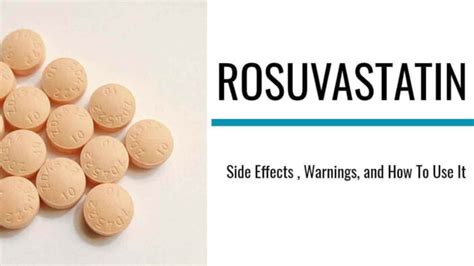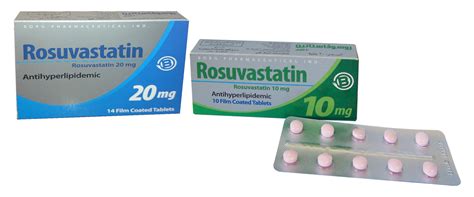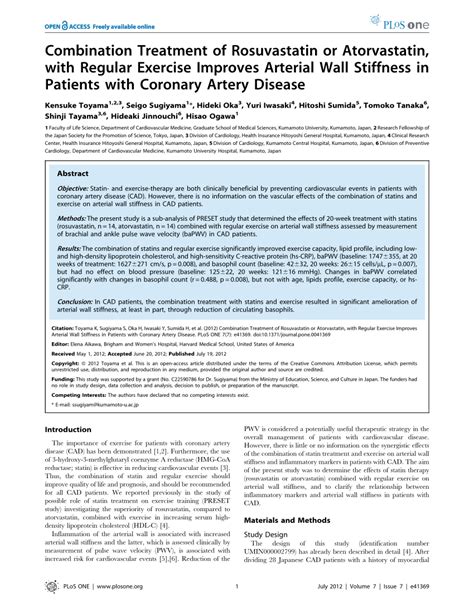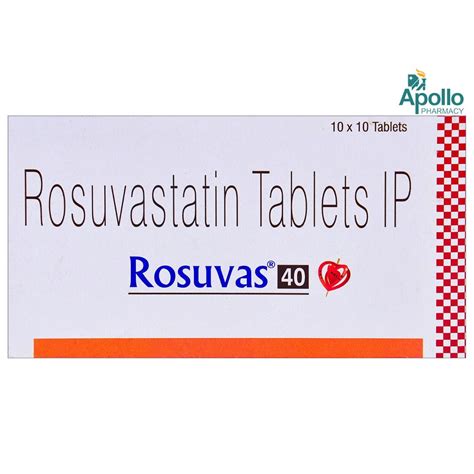Intro
Rosuvastatin treats high cholesterol, reducing cardiovascular risk with statin therapy, managing hyperlipidemia and preventing heart disease.
Rosuvastatin is a medication that has gained significant attention in recent years due to its effectiveness in managing cholesterol levels and reducing the risk of cardiovascular disease. As a statin, rosuvastatin works by inhibiting the production of cholesterol in the liver, which in turn helps to lower the levels of low-density lipoprotein (LDL) cholesterol, also known as "bad" cholesterol, in the blood. With its ability to reduce the risk of heart attacks, strokes, and other cardiovascular events, rosuvastatin has become a crucial component of modern cardiovascular care.
The importance of managing cholesterol levels cannot be overstated. High levels of LDL cholesterol can lead to the buildup of plaque in the arteries, increasing the risk of cardiovascular disease and potentially resulting in life-threatening events. Furthermore, elevated cholesterol levels can also contribute to the development of other health issues, such as peripheral artery disease and kidney disease. By effectively reducing LDL cholesterol levels, rosuvastatin plays a vital role in maintaining cardiovascular health and preventing these conditions.
In addition to its cholesterol-lowering effects, rosuvastatin has also been shown to have anti-inflammatory properties, which can help to reduce the risk of cardiovascular events. The medication has been extensively studied in clinical trials, and the results have consistently demonstrated its efficacy and safety in managing cholesterol levels and reducing the risk of cardiovascular disease. With its proven track record and ability to improve patient outcomes, rosuvastatin has become a widely prescribed medication for individuals with high cholesterol or those at risk of developing cardiovascular disease.
Rosuvastatin Mechanism of Action

Rosuvastatin works by selectively inhibiting the enzyme HMG-CoA reductase, which is responsible for converting HMG-CoA into mevalonate, a precursor to cholesterol. By blocking this enzyme, rosuvastatin reduces the production of cholesterol in the liver, leading to a decrease in the levels of LDL cholesterol in the blood. Additionally, rosuvastatin increases the production of high-density lipoprotein (HDL) cholesterol, also known as "good" cholesterol, which helps to remove excess cholesterol from the bloodstream and transport it to the liver for excretion.
The medication also has anti-inflammatory effects, which can help to reduce the risk of cardiovascular events. Rosuvastatin has been shown to decrease the levels of C-reactive protein (CRP), a marker of inflammation, and to improve endothelial function, which can help to prevent the formation of blood clots and reduce the risk of cardiovascular disease.
Rosuvastatin Benefits
The benefits of rosuvastatin are numerous and well-documented. Some of the most significant advantages of the medication include: * Reduced risk of cardiovascular events, such as heart attacks and strokes * Lowered levels of LDL cholesterol and increased levels of HDL cholesterol * Anti-inflammatory effects, which can help to reduce the risk of cardiovascular disease * Improved endothelial function, which can help to prevent the formation of blood clots * Reduced risk of peripheral artery disease and kidney diseaseRosuvastatin Side Effects

While rosuvastatin is generally well-tolerated, it can cause some side effects in certain individuals. Some of the most common side effects of the medication include:
- Muscle pain or weakness
- Liver enzyme elevations
- Increased risk of diabetes
- Headache or dizziness
- Nausea or vomiting
It is essential to note that these side effects are typically mild and temporary, and they often resolve on their own without the need for medical attention. However, in rare cases, rosuvastatin can cause more severe side effects, such as muscle damage or liver failure, which require immediate medical attention.
Rosuvastatin Dosage
The dosage of rosuvastatin varies depending on the individual patient's needs and medical history. The medication is typically taken once daily, with or without food, and it is available in several different strengths, including 5mg, 10mg, 20mg, and 40mg tablets.The recommended starting dose of rosuvastatin is usually 10mg or 20mg per day, and it can be adjusted based on the patient's response to the medication. It is essential to follow the dosage instructions carefully and to consult with a healthcare provider before making any changes to the medication regimen.
Rosuvastatin Interactions

Rosuvastatin can interact with other medications, including:
- Gemfibrozil, which can increase the risk of muscle damage
- Cyclosporine, which can increase the levels of rosuvastatin in the blood
- Warfarin, which can increase the risk of bleeding
- Antacids, which can decrease the absorption of rosuvastatin
It is crucial to inform a healthcare provider about all medications, including prescription and over-the-counter medications, vitamins, and supplements, before starting rosuvastatin. This can help to minimize the risk of interactions and ensure safe and effective treatment.
Rosuvastatin Warnings and Precautions
Rosuvastatin is not suitable for everyone, and there are certain warnings and precautions that need to be considered before starting the medication. These include: * Pregnancy and breastfeeding: Rosuvastatin is not recommended for pregnant or breastfeeding women, as it can harm the fetus or baby. * Liver disease: Rosuvastatin can cause liver damage, and it is essential to monitor liver function regularly while taking the medication. * Kidney disease: Rosuvastatin can increase the risk of kidney damage, and it is crucial to monitor kidney function regularly while taking the medication.Rosuvastatin Alternatives

For individuals who are unable to take rosuvastatin or who experience side effects, there are alternative medications available. These include:
- Atorvastatin
- Simvastatin
- Pravastatin
- Lovastatin
- Ezetimibe
It is essential to consult with a healthcare provider before switching to an alternative medication, as they can help to determine the best course of treatment based on individual needs and medical history.
Rosuvastatin and Diet
A healthy diet is essential for managing cholesterol levels and reducing the risk of cardiovascular disease. A diet that is low in saturated and trans fats, added sugars, and refined carbohydrates can help to lower LDL cholesterol levels and improve overall cardiovascular health.Some of the key dietary recommendations for individuals taking rosuvastatin include:
- Eating a variety of fruits and vegetables
- Incorporating whole grains, such as brown rice, quinoa, and whole-wheat bread
- Choosing lean protein sources, such as poultry, fish, and legumes
- Limiting intake of saturated and trans fats, added sugars, and refined carbohydrates
Rosuvastatin and Exercise

Regular exercise is also crucial for managing cholesterol levels and reducing the risk of cardiovascular disease. Exercise can help to lower LDL cholesterol levels, improve HDL cholesterol levels, and reduce blood pressure.
Some of the key exercise recommendations for individuals taking rosuvastatin include:
- Engaging in at least 150 minutes of moderate-intensity aerobic exercise per week
- Incorporating strength-training exercises, such as weightlifting or bodyweight exercises, at least two times per week
- Choosing activities that are enjoyable and sustainable, such as walking, jogging, cycling, or swimming
Rosuvastatin and Stress Management
Stress can have a negative impact on cardiovascular health, and it is essential to manage stress levels effectively. Some of the key stress management techniques for individuals taking rosuvastatin include: * Practicing relaxation techniques, such as deep breathing, meditation, or yoga * Engaging in activities that are enjoyable and relaxing, such as reading, listening to music, or spending time with friends and family * Getting enough sleep, aiming for 7-8 hours per nightRosuvastatin and Mental Health

Mental health is closely linked to cardiovascular health, and it is essential to prioritize mental well-being. Some of the key mental health recommendations for individuals taking rosuvastatin include:
- Practicing self-care, such as getting enough sleep, exercising regularly, and eating a healthy diet
- Seeking support from friends, family, or a mental health professional
- Engaging in activities that are enjoyable and fulfilling, such as hobbies or creative pursuits
Rosuvastatin and Long-Term Health
Rosuvastatin can have a significant impact on long-term health, and it is essential to consider the potential benefits and risks of long-term treatment. Some of the key considerations for individuals taking rosuvastatin include: * Regular monitoring of cholesterol levels and cardiovascular health * Adjusting the dosage or switching to an alternative medication if necessary * Prioritizing a healthy lifestyle, including a balanced diet, regular exercise, and stress managementWhat is rosuvastatin used for?
+Rosuvastatin is used to lower cholesterol levels and reduce the risk of cardiovascular disease.
How does rosuvastatin work?
+Rosuvastatin works by inhibiting the production of cholesterol in the liver and increasing the production of HDL cholesterol.
What are the common side effects of rosuvastatin?
+The common side effects of rosuvastatin include muscle pain or weakness, liver enzyme elevations, and increased risk of diabetes.
Can rosuvastatin be used in combination with other medications?
+Yes, rosuvastatin can be used in combination with other medications, but it is essential to consult with a healthcare provider before starting any new medications.
How long does it take for rosuvastatin to start working?
+Rosuvastatin can start working within a few weeks, but it may take several months to achieve the full benefits of the medication.
We hope this article has provided you with a comprehensive understanding of rosuvastatin and its role in managing cholesterol levels and reducing the risk of cardiovascular disease. If you have any further questions or concerns, please do not hesitate to reach out to a healthcare professional. Remember to always prioritize a healthy lifestyle, including a balanced diet, regular exercise, and stress management, to achieve optimal cardiovascular health. Share this article with friends and family to help spread awareness about the importance of managing cholesterol levels and reducing the risk of cardiovascular disease.
